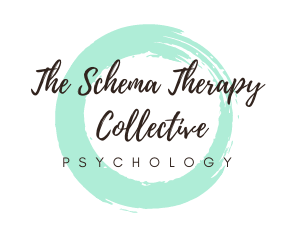In modern parenting, parents often think about how to meet their child’s emotional needs. But how often do we consider our emotional needs as adults or whether our core emotional needs were met sufficiently by our caretakers when we were children?
Many of us may not even be in contact with what our core emotional needs are, having developed extreme self-sufficiency or because it’s hard to know what we’re missing if we’ve never had it. You may even feel like you are needy when you come into contact with your emotional needs or don’t deserve to have your needs met.
Most of the clients I see have patterns that play out in relationships or contribute to current mental health symptoms that relate to not having their core emotional needs met as children. This can occur even if you received well-intentioned parenting not just as a result of abuse or neglect. When our needs are not met we form unhelpful core beliefs (also known as schemas) about ourself. In certain situations. these schemas activate and feel painful. To learn more about these schemas, I have written about all of the early madalaptive schemas here
In this post, I will be discussing the core emotional needs of childhood as outlined in schema therapy. All children have the same core needs to develop healthily. We never grow out of these needs and continue to have emotional needs as adults.
For more on how to meet little you’s emotional needs see my post “What does little you need. Learning to take care of your vulnerable part”
The core emotional needs are grouped across 5 areas:
- A secure attachment to others
- Freedom to express valid needs and feelings
- Autonomy, competence and a sense of identity
- Spontaneity and play
- Realistic limits and self-control
The need for secure attachment
Secure attachment is the word psychologists use to describe a child’s emotionally connected relationship with their carer. Secure attachment is built when carers take care of children in a way that they feel safe and protected, they know that they matter and are loved, that they are a valuable part of their family and their emotional world and temperament is understood by their carer.
If you had an abusive or neglectful childhood your carers inability to meet your need might be very apparent because you are aware of your mistrust or feelings of shame. But for those raised in seemingly “good childhoods” the impact of having parents who aren’t able to tune into their child’s emotional world and unique temperament is harder to spot. This is just what you know and you may not recognise how it shows up in your schemas. It may look like not feeling like your parents know you or care about your inner world or not feeling close to your parents.
Freedom to express valid needs and feelings
Children need to be able to express their feelings, thoughts and needs and have a nurturing and understanding response from their carers. If they receive the message that their feelings are unacceptable, unwanted or bad their core emotional needs are not met.
When children have carers that understand their emotions, do not punish emotional expression and also help the child to regulate their emotions, the child’s core needs will be met. When these core needs are not met, as adults we can develop a number of schemas and may also have difficulty expressing emotion or feel excessively self-critical of our very normal thoughts and feelings.
Autonomy, competence and a sense of identity
This core need is met by being allowed to do age appropriate tasks and receiving useful, non-critical feedback.
Core needs for autonomy and competence are not met when a child has everything done for them by their carer or they are expected to have too much responsibility for their age (for example, a 6 year old taking care of all the younger kids).
In later years, if parents are too controlling of their child’s choices and do not give room for the development of likes and dislikes or allow them to make their own mistakes, their needs in this domain will also not be met.
A healthy sense of identity is hard to develop if the child cannot be autonomous and receives critical feedback about who they are from a carer. This is especially true of people who have emotionally immature parents, who tend to apply labels to children such as good or bad or say ” you are just like your Dad” rather than using a broad range of descriptive terms which truly reflect who their child is. As an adult, this can show up as not knowing who you are or having an inaccurate and negative picture of yourself.
Learning and expressing yourself through spontaneity and play
Play allows for self-expression, exploration and adventure and the development of imagination and creativity. It also gives children opportunities for fun and silliness, rather than taking everything seriously.
If you have parents who are very serious and goal-driven, you may not have had your need for spontaneity and play met. Or perhaps you parents never played with you due to mental health difficulties or they worked all the time to meet the family’s financial needs. This can lead to difficulties being spontaneous, creative and allowing yourself to have fun as an adult. This can sensitize you to depression and other mental health and relationship difficulties.
Realistic Limits and self-control
Connected parenting also focuses on children developing self-control, self-discipline, and taking responsibility for our actions. Some people experience few boundaries and limits as children due to neglectful parenting or parents who encourage children to feel entitled to have and do whatever they want. Other children have too many limits set by controlling or strict parents. Both ends of the spectrum do not allow children’s to get their core needs met and are problematic to healthy development.
Children who do not experience adequate limits may engage in behaviours which are risky with no response from their carers, leaving them to feel uncared for. Or they may experience shame at school when they are reprimanded for crossing a normal social boundary. This can lead to feelings of being socially defective.
Strict parents impact their children by not allowing them to learn how to develop their own sense of self-control. When everything is dictated, a child’s normal thoughts, feelings, and behaviours may leave the child feeling wrong or bad, different to their peers and as adults they may have strict rules for their behaviour
For more on how to meet little you’s emotional needs see my post “What does little you need. Learning to take care of your vulnerable part”
The critic
A common response to not having your core needs met is the development of a strong inner critic. When the vulnerable part of you comes into contact with needs or painful thoughts and feelings, your inner critic often activates and will criticise your thoughts and feelings. This only makes you feel worse and takes you further away from getting your normal and healthy emotional needs met.
The Healthy Adult: developing self-compassion and allowing you to get your needs met.
In schema therapy, we help clients to develop a strong Healthy Adult part that recognizes, validates, and supports the emotional needs of their vulnerable part. The Healthy Adult part responds with compassion to your emotional needs and also helps you advocate for getting your needs met in a way that will be more likely to result in them being met, instead of engaging in old habits of self-criticism, exploding with pent-up resentments or not acknowledging your needs as important.
When our Healthy Adult part is strong, we can get our needs met and break free from unhelpful beliefs and behaviour patterns.
To learn more about how schema therapy can help you, Jeff Young’s book “Reinventing your life” is a great start or read more and watch a short video here.


